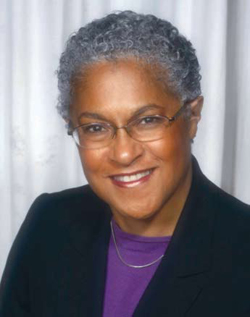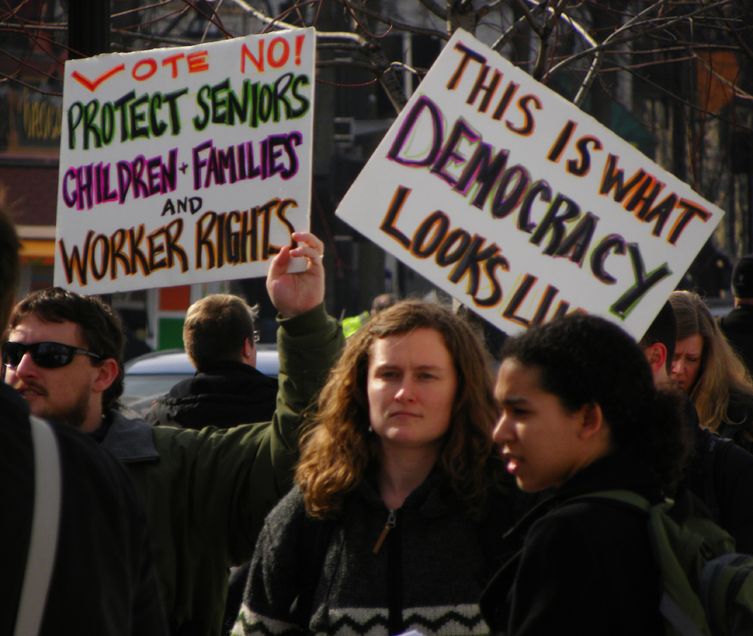
What is diversity? Why does it matter? How can it be achieved?
These questions have been hotly debated for at least the last 50 years. But, what progress has been made in answering them?
Looking through the lens of developmental psychology, Robert Kegan (1994) argues that diversity progress is a function of human development. Unless and until individuals and societies transition to later stages of development, diversity progress will be limited. Furthermore, he argues that the controversy over diversity is, itself, a manifestation of developmental stages, rather than the result of enlightened postmodern thought conflicting with antiquated modernism.
Diversity vs Postmodernism
Kegan describes the “diversity movement” as:
At first, this description sounds like a postmodern call for liberating the underprivileged—and it is. A quick survey of academic “diversity” research shows that Kegan’s description reflects the views of many diversity advocates and scholars. For example, in her recent article, “Advancing Diversity in Higher Education,” Caroline Turner (2013) cites the “longstanding lack of racial, ethnic, and gender diversity among students, faculty, and staff in academe.” She mentions the goal of “continued development of an inclusive and nurturing workplace environment for diverse populations of students, faculty and staff.”
Although this view of diversity sounds like postmodernism, Kegan (1994) argues that it is conceived in a 4th order of consciousness. Therefore, it is actually a subset of a true postmodern perspective, which can only be seen at a 5th order of consciousness. According to Kegan’s stage development theory, 4th-order thinking seeks to resolve conflict by respecting each other’s views and including them in a negotiated agreement. Turner’s (2013) use of the terms, “inclusive” and “nurturing” are indications of this 4th-order view. At the 4th order, each party is then free to go about the task of self-authoring and “developing their own authentic brand of authority” (Kegan, 1994). While the relationship with diverse others is taken as object at the 4th order, ideology, such as “liberation of the underprivileged,” is taken as subject. Thus, “diversity,” which is used to mean “equal representation,” at the 4th order is an ideological perspective in which 4th-order thinkers are immersed.
Kegan proclaims:
 What does he mean by “nothing to fear?” The “fear” to which Kegan (1994) refers is the feeling of inadequacy a teacher who thinks at the 4th level would have if the teacher believed a 5th order of consciousness is required to achieve “diversity” in the classroom. In other words, 4th-order, ideological thinkers in academia are perfectly able to handle the 4th-order definition of “diversity.” What they cannot handle is the 5th-order demand that a full postmodern perspective would place on them.
What does he mean by “nothing to fear?” The “fear” to which Kegan (1994) refers is the feeling of inadequacy a teacher who thinks at the 4th level would have if the teacher believed a 5th order of consciousness is required to achieve “diversity” in the classroom. In other words, 4th-order, ideological thinkers in academia are perfectly able to handle the 4th-order definition of “diversity.” What they cannot handle is the 5th-order demand that a full postmodern perspective would place on them.
The 5th-order view of diversity doesn’t seek to resolve conflict and only ensure that diverse groups are represented among the ranks of the privileged. Rather, 5th order thinking takes the self-authored, ideological self as object and recognizes it as incomplete without the presence of conflicting, dialectical ideologies. Fifth order “inclusiveness,” therefore, incorporates the diverse ways of knowing that are brought by people from different groups. In summary, diverse representation, a 4th-order demand is different than diverse knowing, a 5th order demand.
Smith (1999) illustrates a fully postmodern view of diverse knowing. She argues for decolonizing social research methodologies to reveal and include indigenous epistemologies in academic discourse. While she advocates that indigenous scholars should be represented in academic institutions, she sees representation as an indicator, rather than an end-goal. Her end-goal is for indigenous scholarship to be represented—that is, for the privileged groups that have colonized academic epistemologies to accept indigenous epistemologies as necessary for completing a post-ideological way of knowing.
 Another example of post-ideological diversity is Collins’ (2008) discussion of black feminist epistemologies. Collins calls into question the ideological positions taken by many representatives of dominated groups who possess “subjugated knowledge”. She argues that while subjugated people may be the best to represent subjugated knowledge, any epistemology such as “black feminist thought, represents a partial perspective” (Collins, 2008). She says, “no one group possesses the theory or methodology that allows it to discover the absolute “truth” or, worse yet, proclaim its theories and methodologies as the universal norm evaluating other groups’ experiences.” Collins is thus arguing for a black feminist epistemology that surrenders its sense of wholeness and integrity for its position (Kegan, 1994). These demands for post-ideological, inclusive knowing, as illustrated by Smith and Collins, are what Kegan argues are the demands of 5th-order thinking.
Another example of post-ideological diversity is Collins’ (2008) discussion of black feminist epistemologies. Collins calls into question the ideological positions taken by many representatives of dominated groups who possess “subjugated knowledge”. She argues that while subjugated people may be the best to represent subjugated knowledge, any epistemology such as “black feminist thought, represents a partial perspective” (Collins, 2008). She says, “no one group possesses the theory or methodology that allows it to discover the absolute “truth” or, worse yet, proclaim its theories and methodologies as the universal norm evaluating other groups’ experiences.” Collins is thus arguing for a black feminist epistemology that surrenders its sense of wholeness and integrity for its position (Kegan, 1994). These demands for post-ideological, inclusive knowing, as illustrated by Smith and Collins, are what Kegan argues are the demands of 5th-order thinking.
Controversy and Conflict
Put under the lens of Kegan’s (1994) stage development theory, controversies over diversity become questions of stage development.
People who construct reality at 3rd order see diversity as a) having their perspective represented and b) acknowledging other perspectives. Since Kegan estimates that over 2/3rds of people in the United States think at this level of consciousness, 2/3rds of the people are still working to understand other points of view. Their voices may be heard as “demands” for concrete issues, such as jobs and fair pay.
 At 4th order, diversity is seen as the sharing and interacting of distinct, authentic brands. The 1/3rd of people who think at this level are concerned with authoring their own identity and see conflict as the result of the interaction between diverse identities. If the other views didn’t exist, there wouldn’t be a conflict. Their voices may be heard as demands for equal access to privilege for all.
At 4th order, diversity is seen as the sharing and interacting of distinct, authentic brands. The 1/3rd of people who think at this level are concerned with authoring their own identity and see conflict as the result of the interaction between diverse identities. If the other views didn’t exist, there wouldn’t be a conflict. Their voices may be heard as demands for equal access to privilege for all.
At 5th order, diversity is seen as creating systems that can encompass diverse ideologies. The few people who think at this level are concerned with questioning the systems that devalue and create roadblocks for diverse ways of knowing. They see conflict as an indication of their own incompleteness. And they seek out the contradictions and conflicting ideologies that both grow their completeness and renew their incompleteness. Their voices may be heard as demanding that everything be questioned and that everything be deemed incomplete.
Because these 5th-order demands, and those who make them, may seem as destructive as they are deconstructionist, Kegan (1994) proposes a slightly different approach—“reconstructive postmodernism.” Once the 5th order thinker has deconstructed 4th-order modernism, a reconstructive approach would allow for a new way of knowing that preserves differences. But, regardless of how 5th order postmodern thinking is interpreted, Kegan emphasizes the importance of recognizing that, in at least 2/3rds of the cases, efforts to achieve diversity result in helping people into modernism, rather than out of it. “Misattributing the nature of the real mental transformations people are seeking makes us good company for the wrong journey,” he argues.
Furthermore, Kegan (1994) argues that “modernist” tools such as stage development theory and subject-object theory can be useful to people as they make the journey from 3rd to 4th to 5th order consciousness. The process of taking each stage as object is what can get us to the postmodern ways of knowing. Perhaps we can then achieve the dream of diversity where, paraphrasing Martin Luther King, we realize that our freedom is inextricably bound to others’ freedom, and “the sons of former slaves and the sons of former slave owners…sit down together at the table of brotherhood” (King, 2008)—a table where not only is everyone represented, but where their ways of knowing are preserved and incorporated.
References
Collins, P. (2008). Black feminist thought, 3rd Ed. New York: Routledge.
Kegan, R. (1994). In Over Our Heads. Cambridge Mass. Harvard University Press.
King, M. L. (2008). The Words of Martin Luther King, Jr. Newmarket Press.
Smith, L. T. (1999). Decolonizing methodologies: Research and indigenous peoples. New York: ZedBooks.



Social